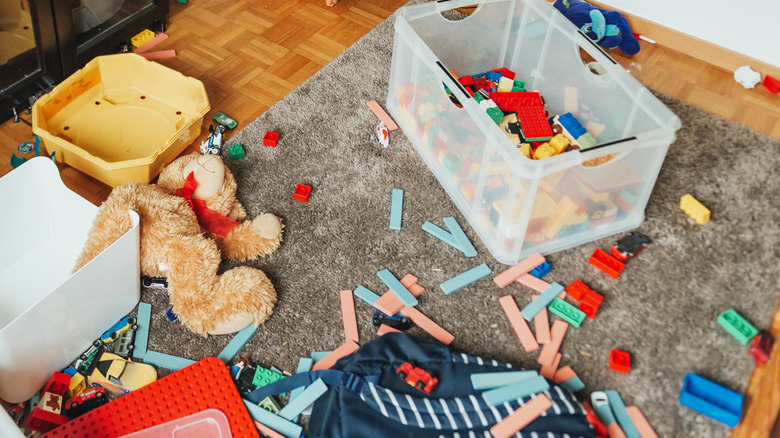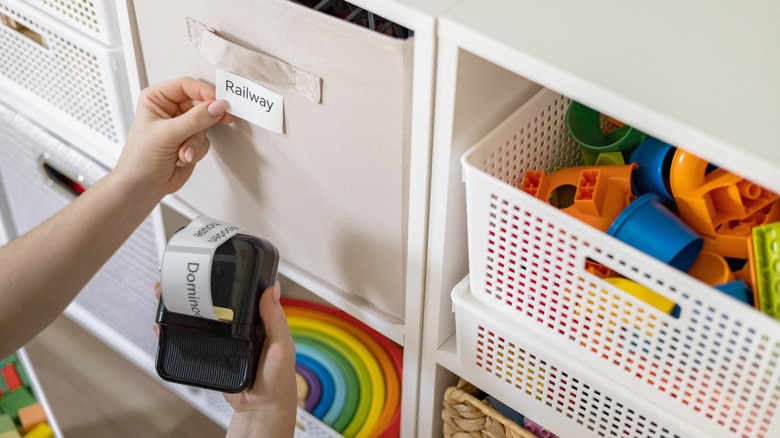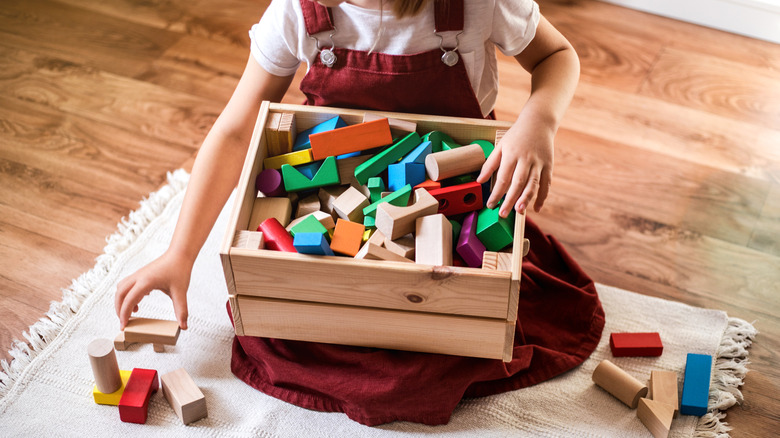Tips To Prevent Your Home From Getting Overrun By Kid Toys
There's nothing more frustrating than tripping over a child's toy, except maybe stepping on the toy while barefoot. However, there's no reason your home needs to be completely overrun by toys. Rotating out which toys children have access to, having a clear designated space for each toy or type of toy, and allowing your kids to face natural consequences for failing to take care of their toys and other belongings can go a long way towards ensuring a (relatively) neat home, even with young kids.
Study after study shows that having too many toys isn't actually beneficial for children. Not only can it create sensory overload, but it discourages sharing and causes children to play with each toy far less. While it can be difficult to cut back on buying toys and encourage relatives to buy your kids fewer toys, it will give you a less cluttered home and benefit your kids in the long run.
Rotating toys and giving belongings a designated space
Even though fewer toys may be best for kids, few people can resist the joy of giving a child a new toy. That doesn't mean your kids have to have access to all their toys at once. Decide on a reasonable number of toys for your kids to play with, and make a rule that those toys must be stored away before a different toy can come out. Keeping the toys that aren't currently being used out of sight and mind in a storage closet may make it easier for your kids to accept this. Rotating these toys out monthly will not only prevent clutter but also keep your kids from getting bored with their toys. These monthly rotations can also be a good time to check if any toys can be donated or given to new homes. For older kids, you can even have them get involved with the decluttering process.
Your kids' toys should have defined "homes" so your child can easily put them away. This could be a labeled bin or a toy chest if you have a handy label maker around the house. You can even opt for Joanna Gaines' method of fixing children's clutter, where she allows the clutter to be part of the decor. This isn't just cute, it also makes the designated storage areas for each toy more visible and may help make it easier for your child to take care of their belongings.
Allowing children to face natural and logical consequences
It can be devastating to see your child sad or disappointed, but continually sheltering them from those feelings isn't doing them any favors. If your child refuses to take care of their toys or put them away as requested, allowing them to face natural and logical consequences for this can not only help keep your house tidier, but also prevent a power struggle with your child and teach them valuable skills.
A logical consequence of refusing to put away a toy might be having the toy taken away for a set amount of time. A natural consequence of a messy space could be that they can't find the toy that they want to play with because there is too much clutter. Instead of jumping in to solve the problem, let your child experience and handle these disappointments so they have the opportunity to learn and grow. It should also lead to a tidier and happier house.


